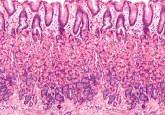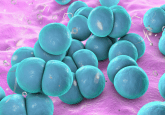The microbiome

Research into the microbiome – particularly within the gut – and its role in modulating brain function has become an area of increasing traction over the last few years. More and more studies have pointed towards the microbiome as a key player in neurological diseases, including Alzheimer’s disease, Parkinson’s disease, multiple sclerosis, stroke and autism spectrum disorder.
However, the interpretation of results in the field has been difficult as microbial composition can be influenced by factors such as diet and exercise. In addition to this, the metabolites and byproducts produced by these microorganisms may also play a factor. So where is microbiome research now in relation to neurological diseases? Can findings be translated to diagnostics and treatments? And what are the next steps?
In this Spotlight, we’ll bring together expert opinions from across neurological disease research and clinical practice to discuss how the microbiome might be playing a role in neurological diseases. Additionally, we will also explore the challenges associated with microbiome research and the future perspectives of the field.











